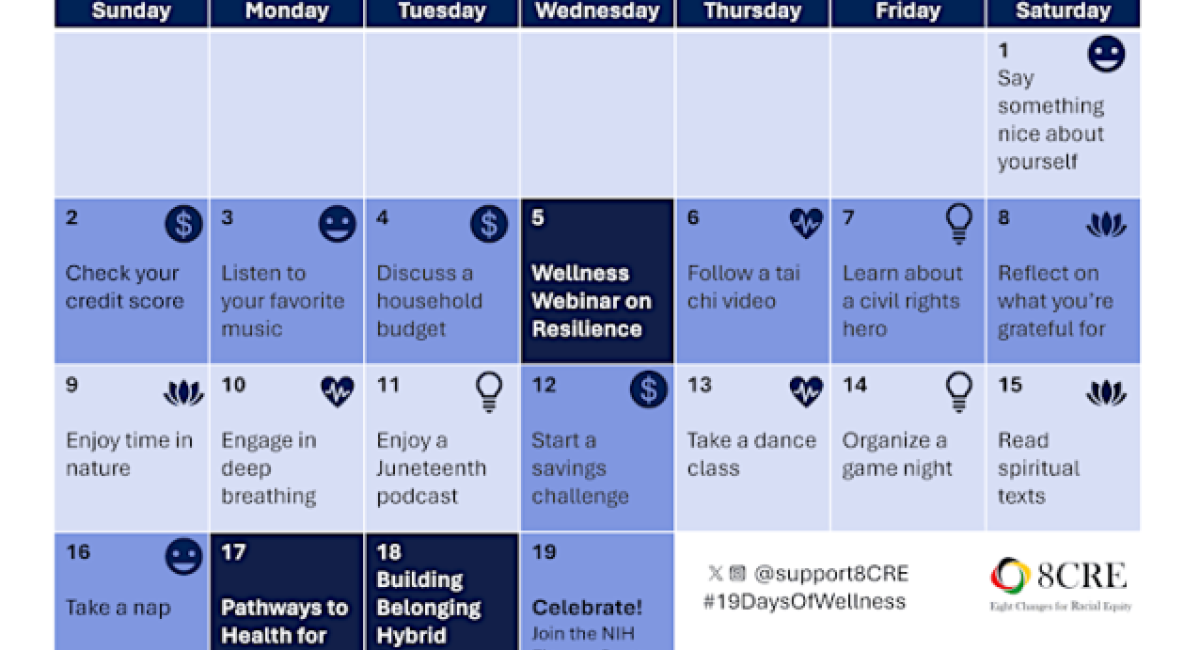Self-worth is an essential component of our well-being. The American Psychological
Association (APA) defines self-worth as “your evaluation of yourself as a capable and valuable
human being deserving of consideration and respect. It is an internal sense of being worthy of
love”. Self-worth is valuing yourself and the unique qualities that define who you are. It is an
internal feeling of worth and not to be based on external validation. When we intrinsically feel
we are worthy, our self-image and self-esteem aren’t dependent on other people’s perceptions;
Accountability and Self: Addressing Self-Esteem, Self-Worth and Self-Image
How to Work with What You Got: Managing the Unpredictable Challenges of Working with Chronic Health Issues
Many of us are dealing with health issues, mental and physical, that are chronic and can impact our capacities at work. Our energy levels, pain, and ability to concentrate may be unpredictable day-to-day, making it difficult to always plan accurately for what we might be able to get done. This can lead to feelings of guilt and shame that only add to the pressure we’re already experiencing given the situation we’re in. With all this in mind, I think it’s important to directly acknowledge that there are no perfect or one-size-fits all solutions to navigating this difficult situation.
Interrupting our Self-Doubt through Self-Awareness
We all know the feeling of self-doubt. It’s that voice inside us that tells us we’re not quite good enough, not cut out for what’s ahead. None of us like to openly admit it’s there because that would blow our cover of proving our worth. So instead, we let it fester inside us and try to soothe its irritation by engaging strategies that usually look something like:
People pleasing: We do and say things that keep the peace around our coworkers and peers out of fear of rocking the boat or our inadequacies may be exposed.

Perfectionism Throughout My Life: A Journey Through Art
Guest Blogger: Andrea Naranjo Erazo, PhD: Co-director, NIH Academy on Health Disparities and Research Ethics Coordinator, OITE
I grew up with a strong desire to be perfect. Always getting A’s, never getting in trouble, and caring deeply of what others thought of me. This was also reflected in my early paintings, where I placed great attention to details, and captured landscapes perfectly.
Minding Our Mood- Steps to Help Us Manage Our Emotions
Every day we experience a myriad of emotions. Our emotional day can be steady or fluctuate between moods, depending upon many internal and external variables. These variables may include the amount we slept, hunger level, stress at home or work, as well as many others. There are times we become stuck emotionally and are unable to break out of an unhealthy cycle. If we are in a “bad” mood or negative frame of mind, we tend to focus our attention inward. It is important to differentiate a bad mood from depression.
Resiliently Navigating Rejection: Forging A New Path Forward
Rejection is something we will all deal with at some point in our lives. Unfortunately, this sentiment – meant to give us perspective and a sense of common humanity in our struggle – isn’t one we readily soak in when we’re the person who’s been turned down by our dream job or denied admissions to the medical or graduate school on which we’ve hung the fate of our future. Instead, when dealing with rejection, we often forgo the more helpful, deliberate practices of self-compassion, for our less helpful modus operandi: self-doubt, rumination about what we should have done differently, and worry about the future.
Working Toward a Goal Without Letting it Take Over Your Life
With the new year, the season of setting resolutions has begun. But how can you work toward achieving a goal without letting it completely take over your life? Some goals – research projects, graduate/medical school – can feel all-consuming. It can be easy to get lost in the hustle and feel burnt out along the way. In fact, many report feeling burned out after achieving a long-term goal because instead of a break, there is another new achievement to strive for. For example, after graduation comes a job search and after a job comes a striving for a promotion.
Interviewing the Interviewer
Thorough preparation is essential in advance of any industry job interview to ensure that you perform at the highest level possible. Making sure that your resume is in order, that you have accessed available sources to obtain vital information both on the company and the person who will be conducting the interview and practicing your responses to anticipated questions are all key to completing a successful interview. One additional step that is just as important, but often times overlooked is preparing a set of questions to ask of the interviewers to help you determine whether the company and the work environment are right for you.
Opposite Action: A Skill for the Emotional Regulation Toolkit
Post Written By: Adeline Kerviel, PhD, Detailee at OITE
Emotions can sometimes interfere with daily life, personal and career goals, or relationships. Developing strategies to help regulate these emotions can help us adapt and grow through setbacks: to make us more resilient.




